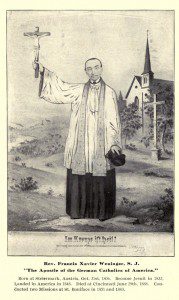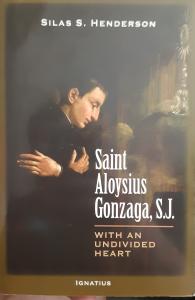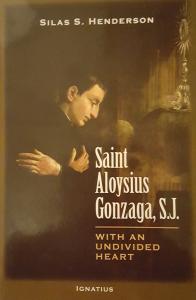 FEAST OF CORPUS CHRISTI. “This is the day which the Lord hath made; let us be glad and rejoice therein.” — Psalm cxvii, 24.
FEAST OF CORPUS CHRISTI. “This is the day which the Lord hath made; let us be glad and rejoice therein.” — Psalm cxvii, 24.
THE Church, on this day of jubilee, loves to call her children to the house of God, from which they go forth with hymns of praise and prayers in honor of the Blessed Sacrament, which is borne, under a richly ornamented canopy, by one of the Lord’s anointed ministers, to the altars erected by the faithful, to receive the blessing of the Lord. That this benediction may be poured out so as to bring forth the richest fruit, it is essential that our hearts be animated with the dispositions proper to receive so great a boon. To effect this, the consideration of the anthem, which the Church makes use of in the administration of the Blessed Sacrament to the faithful, will be most illustrative. The anthem runs as follows: “O sacrum convivium !” ”O sacred banquet in which Christ is received, the heart replenished with grace, and the pledge of eternal life bestowed!”
These words indicate the particular graces which we, as Catholics, enjoy through Jesus Christ in the Blessed Eucharist; and which should call forth our most profound adoration and ardent gratitude, our fervent petition and sincere love and desire.
O Mary, obtain for us that disposition of heart in which thou didst, in ages past, entone the “Magnificat,” remembering the graces which God bestowed upon thee through Jesus Christ !
I speak in the most holy name of Jesus, for the greater honor and glory of God!
“O sacred banquet in which Christ is received!” The consecration, through which our Lord becomes present on our altars, reminds us most vividly, as the holy fathers remark of the great grace, of the Incarnation of the Son of God— the greatest of all graces— the source of all the rest. Every thing depended on whether God would stretch forth His arm to save the fallen human race or not. He did; and their Redemption was accomplished by the Incarnation of His divine Son, the pledge of which is the consecration when the Body and Blood of Christ are on the altar, instead of the bread and wine, which a moment before were there.
God, in His justice, did not spare the Angels, yet He extended His clemency to us. Sing praise to Him, for His mercy endureth forever; and this infinite mercy leads Him to impart to us the merits of redemption in all their plenitude, because we are children of His Church— the only one in which salvation is to be found; and we possess, therefore, the light of true faith, and every means of salvation— yes, even Jesus Christ Himself in the Blessed Sacrament. What a grace! Millions and millions have lived and died without it, and yet it is within our reach! Let us, then, pour forth our grateful thanks to God for having given us a place in His kingdom on earth. Most beloved in
Christ, it was for no merit of ours that we have been called to the Catholic faith. There are millions who do not celebrate Corpus Christi to-day, who do not with us feast upon this sacred banquet. But this privilege and blessing calls for a certain acknowledgment, which is to show our appreciation of it by a truly Catholic life.
The most efficacious means for promoting the increase of grace in our hearts is a lively faith in the real presence of Christ, united with the determination to derive as much benefit as possible from it through our frequent presence before Him. Let the foregoing reflections fill your minds during the course of the procession to the first altar. Think of the unmerited grace of being a Catholic; whisper to your Lord how ardently you wish to live in accordance with the teachings of that divine faith, and to induce others to participate with you in this happiness.
Make, at the same time, acts of reparation, that you have heretofore thought so little of it yourself, reciting the ”Angelic Salutation” with so little devotion, and manifesting so little interest in propagating the kingdom of the Church. Make acts of reparation, also, for the whole human race, which, for so many years, in so many countries, has so ungratefully rejected this grace, derided, persecuted, and put to death the Apostles and missionaries whom Jesus sent to win their hearts to listen to His gracious call. Say to your Lord that, as far as it lies in your power, you will labor for the propagation of the faith; and, full of the fervor of this intention, to assist the Church, and spread the knowledge and love of Christ, receive the benediction at the first altar.
“O sacred banquet in which Christ is received!” These words indicate a second blessing, which is imparted to us, children of the Church, through the presence of Christ in the Most Holy Sacrament, which is His perpetual Presence among us.
Although it is over eighteen hundred years since our Lord personally dwelt upon earth and ascended into heaven. He, nevertheless, remains with us in this sacrament, and is ever ready to distribute more abundant graces to us than He would have done had we beheld Him then. We can repair to the tabernacle where, under the veil of the sacramental forms. He abides like a captive— held by the chain of His love for us. We can hasten thither, and pour forth the necessities of our souls, the love of our hearts.
Let us, therefore, make firm resolutions frequently to avail ourselves of this privilege, by visiting Jesus even daily, if possible, in this Blessed Sacrament. If Christendom would but accept the glorious truth, what throngs would seek the temple of the living God, and open their hearts before Christ the Lord, to speak to Him in loving confidence. But have you not also something to reproach yourselves with in this regard? Do you not spend weeks and even months in entire forgetfulness of the presence of Christ on our altars?
With the desire of making reparation, then, at the second altar, kneel down before your God. Bow down in adoration, and receive benediction with the firm resolve often to visit those churches wherein He dwells, to petition for graces from the fountain of His wounds.
”O sacred banquet, at which the heart is filled with graces!” The third source of grace, which the Blessed Sacrament bestows upon us, is the blessing of Holy Mass— the sacrifice of the New Law. This wonderful sacrament is, indeed, the Sun of divine service which will shed its beams over the whole universe to the very end of time. The sacrifice of Christ on the cross is, indeed, the principal source whence issue all the graces of Redemption. But the sacrifice of the Mass is the very same, bestowing daily abundance of graces on all who seek them and determine to use them. O what a motive for joy and gratitude! What honor is given, what homage is offered to the triune God, by the daily sacrifice of the Mass!
There is not one moment In the day, not one moment in the night, in which the sacrifice of the Mass is not offered up in one or another quarter of the globe. Not one single moment wherein some priest in one or another portion of the world is not elevating the Sacred Host to heaven, surrounded with a glory and splendor which our eyes can not behold, and beside which the glory of the saints and angels seems dim. There is not one moment of time in which this Adorable Victim is not presented to the Eternal Father— an offering so precious that all the praise and homage ever offered by the Angels, or that ever will be offered, is as nothing compared to it.
Then let us, at the third altar, pour forth our thanks to God for every Holy Mass which has ever been said since the Apostles first celebrated theirs,and for the very last one which will be offered up before the Judge of the living and the dead shall come ” to judge the world by fire.” Let us return thanks for every grace which has been conferred upon us during all the Holy Masses at which we have ever devoutly assisted, and make acts of reparation for all the outrages endured by Jesus from us by our neglecting to assist at Mass, or by hearing it without proper devotion ; also for all that He has had to suffer, even from the children of His Church, during the celebration of the divine mysteries.
“And through which we receive the pledge of eternal glory.” The fourth motive for gratitude and reparation is the happiness of receiving the Holy Communion. If the fathers could not find words to express the magnitude of the grace which is imparted to us by its worthy reception, much less are we able to express the thanks which are due to our Lord for so great a boon.
We are objects of envy to the very Angels. They wonder and adore when we receive our Saviour; when we are united to the divinity and humanity of Christ; when we hold captive the Author of grace, our God and Redeemer, in the poor dwelling of our hearts. Return thanks, O Christian, for every Holy Communion which has been administered since the Last Supper, and for those which will be given until the end of time. Thank God especially for every worthy Communion which you have received yourself; and beg of the Lord to grant you occasion, from this day forward, often to enjoy the same happiness. Beg Him also for grace to employ His presence in your hearts as profitably as possible; yes, in a manner so perfect as to initiate you into His personal love and knowledge.
Do not forget to make acts of reparation for all outrages and ingratitude, the horrible sacrileges, the innumerable unworthy communions, beginning with the crime of Judas, until the very last unworthy reception of the Most Holy Sacrament which will ever take place in the world. And, oh, if any one here present has been so wretched as to receive his Saviour into a heart disfigured by mortal sin, I beg of you repent before it is too late. Let not the sun go down without a sincere resolution to repair the evil by a good confession, and put it into execution the very first moment you can. Receive, then, with heartfelt thanksgiving, the benediction of Jesus Himself at the fourth altar.
These, dearly beloved in Christ, are the affections which should overwhelm us as we kneel at the different altars erected to do honor to the Blessed Sacrament. Then the benediction we receive will enable us to celebrate this day entirely in the spirit of the Holy Catholic Church. Amen!
Rev. F.X. Weninger, S.J., Original, Short and Practical Sermons for Every Feast of the Ecclesiastical Year (Cincinnati: C.J.H. Lowen, 1882).











